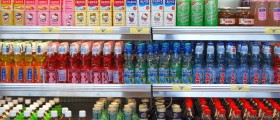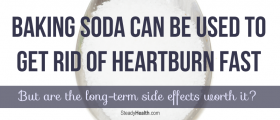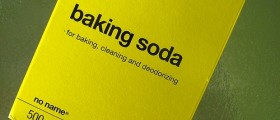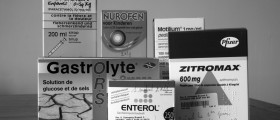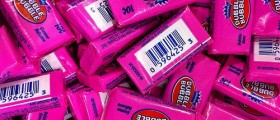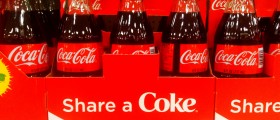carbonation causes the oesophagus to press on the vagus nerve. slows the heartbeat down. this can cause fainting. the unpleasant feeling is caused by the oesophagus pressing similarly onto the trachea, which is hard.
Loading...
I realize this is old but Google brought me here as I literally dropped to the floor this morning from single sip of vernor’s gingerale and I felt exactly as you described. I had to get in the fetal position and I was soaked in sweat! It felt similar to a gallbladder attack with the stomach/chest/side/almost back pain and the intensity, but almost worse. I almost couldn’t breathe. And then it subsided. I was scared to drink anything else for hours and hours today!
Loading...
Health Hero
1626 posts
Hi.
Possible causes of the symptoms you experienced after drinking Vernor's ginger ale:
1. Gastrointestinal Issues: You might have an underlying gastrointestinal problem, such as acid reflux, gastritis, or an ulcer. Consuming certain foods or beverages, including carbonated drinks like ginger ale, may exacerbate these conditions and lead to symptoms like stomach pain and difficulty breathing.
2. Food Allergy or Sensitivity: It's possible that you have a specific allergy or sensitivity to an ingredient in the ginger ale or another component of your diet. Allergic reactions can sometimes cause severe symptoms, including abdominal pain, sweating, and breathing difficulties.
3. Gallbladder Issues: While you mentioned that it felt similar to a gallbladder attack, it's essential to note that gallbladder problems can manifest in various ways, and symptoms may not always be typical. Gallstones or inflammation in the gallbladder could cause intense pain after consuming certain foods or beverages.
4. Esophageal Spasm: An esophageal spasm is an abnormal contraction of the muscles in the esophagus, which can lead to chest pain and difficulty swallowing. Certain triggers, like carbonated drinks, might provoke these spasms.
At-home treatment suggestions:
Avoid Trigger Foods and Beverages: Until you can see a healthcare professional and receive a proper diagnosis, it's best to avoid consuming anything that seems to trigger these severe symptoms, including ginger ale or any other carbonated drinks.
Hydration: Drink plenty of water and stay hydrated throughout the day. If you're hesitant about drinking liquids after the previous experience, try small sips of water at first and observe how your body responds.
Dietary Modifications: Consider keeping a food diary to track your diet and symptoms. This can help you identify any potential trigger foods that might be causing or exacerbating your symptoms.
Manage Stress: Stress can sometimes worsen gastrointestinal symptoms. Practice relaxation techniques such as deep breathing exercises, meditation, or yoga to help manage stress levels.
Over-the-counter Antacids: If you suspect acid reflux or heartburn might be contributing to your symptoms, you can try taking over-the-counter antacids according to the recommended dosage.
If you have a history of allergies or other medical conditions, be sure to mention those to your healthcare provider during the evaluation, as it may help in the diagnostic process.
Possible causes of the symptoms you experienced after drinking Vernor's ginger ale:
1. Gastrointestinal Issues: You might have an underlying gastrointestinal problem, such as acid reflux, gastritis, or an ulcer. Consuming certain foods or beverages, including carbonated drinks like ginger ale, may exacerbate these conditions and lead to symptoms like stomach pain and difficulty breathing.
2. Food Allergy or Sensitivity: It's possible that you have a specific allergy or sensitivity to an ingredient in the ginger ale or another component of your diet. Allergic reactions can sometimes cause severe symptoms, including abdominal pain, sweating, and breathing difficulties.
3. Gallbladder Issues: While you mentioned that it felt similar to a gallbladder attack, it's essential to note that gallbladder problems can manifest in various ways, and symptoms may not always be typical. Gallstones or inflammation in the gallbladder could cause intense pain after consuming certain foods or beverages.
4. Esophageal Spasm: An esophageal spasm is an abnormal contraction of the muscles in the esophagus, which can lead to chest pain and difficulty swallowing. Certain triggers, like carbonated drinks, might provoke these spasms.
At-home treatment suggestions:
Avoid Trigger Foods and Beverages: Until you can see a healthcare professional and receive a proper diagnosis, it's best to avoid consuming anything that seems to trigger these severe symptoms, including ginger ale or any other carbonated drinks.
Hydration: Drink plenty of water and stay hydrated throughout the day. If you're hesitant about drinking liquids after the previous experience, try small sips of water at first and observe how your body responds.
Dietary Modifications: Consider keeping a food diary to track your diet and symptoms. This can help you identify any potential trigger foods that might be causing or exacerbating your symptoms.
Manage Stress: Stress can sometimes worsen gastrointestinal symptoms. Practice relaxation techniques such as deep breathing exercises, meditation, or yoga to help manage stress levels.
Over-the-counter Antacids: If you suspect acid reflux or heartburn might be contributing to your symptoms, you can try taking over-the-counter antacids according to the recommended dosage.
If you have a history of allergies or other medical conditions, be sure to mention those to your healthcare provider during the evaluation, as it may help in the diagnostic process.
Loading...








